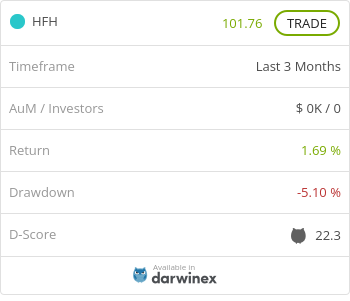
Eco-economics: The Next Generation of Capitalism
Invest in a sustainable future. Explore our fund and advisory services.
Who we are
Helix is a next-generation investment partner built for family offices, foundations, and institutional capital. We combine bespoke advisory and resilient investment strategies rooted in a proprietary eco-economics thesis that captures sustainable, long-term growth.
Our investment and advisory services are underpinned by eco-economics, a model that prioritises businesses that are profitable and sustainable, at the same time. Such businesses prioritise the younger generations (below the age of 30) as key customers, employees, and stakeholders.
We are not restricted by ESG ratings, or the use of whitelist/ blacklist methods, but take a research led, forward looking strategy, that guides our work. Our investors benefit from:
Active management
Returns that are uncorrelated to the market
Returns that are high, but with the lowest drawdowns.
High liquidity
Access to private market opportunities
We believe in radical transparency, and have our thesis, published as books, our strategy published as newsletters, and the positions we take, published as trading signals.
We strongly encourage businesses that follow our model, by promoting them to our investor network.
We help traders simulate their strategy, invest in them, and also promote them to our investor network.
Information on this website is appropriate for:
Individuals that are either accredited or professional investors.
Businesses that are either publicly held (global) or privately held UK and European companies, with operating income.
Family offices that manage assets, over £1M.
Institutions that are sophisticated investors, and do not require the regulatory protections, and are managed by a professional team capable of assessing the risks inherent in investments.
No financial advice. No part of this website may be construed as financial advice.
Investments in securities are subject to market, liquidity and other risks. Please consult your financial advisor to discuss your unique circumstances.
Retail Investor?
Please click the ‘Trade’ button on the right, to onboard with our retail partner, and invest in our strategy. Global retail investors (except US & Canada) can invest in this strategy. Please note that this strategy is fairly recent, but tracks our fund. The performance of this strategy mirrors our fund, for capital preservation, but does not offer the active management that Helix provides.
What we do
-

Advisory
We partner with family offices and institutions to design, manage, and monitor custom investment portfolios.
• Outsourced CIO Services
• Capital Raising
• Sustainability-Linked Loans
• Trading Strategy Simulation
-

Investment
• ESG investing is a $33.9T opportunity by 2026
• Mispricing in sustainability integration offers alpha
• Institutional capital is seeking ESG hedge funds with liquidity and strong returns
• Helix Transition Capital Partners Fund: A differentiated long/short public equity fund that generates structural alpha by investing in companies bridging the gap between today’s market and tomorrow’s sustainable, digitally connected world.

Why Helix?



